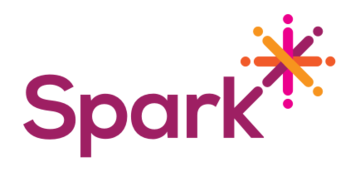
We are delighted to announce the launch of our SPARK Fellowship Program which provides an opportunity for early-to-mid career researchers to undertake a short project in the area of infectious disease preparedness, surveillance, analysis and evidence-to-policy. These Fellowships offer the chance for successful candidates to work with SPARK experts in their field of interest, to build the capacity in their home institution and to contribute to better evidence for policy in their home country. Application details and selection criteria are in the attached document.
During this first Fellowship round we are opening applications from our SPARK collaborating partner institutions.
The Fellowships will last between three and six months and the first intake will be in late February/early March. The deadline for applications is 10 December, however we encourage candidates to submit their proposals as soon as possible so that we can assess the suitability of their proposal and likely supervisory team in good time.
Application process
We are currently open for applications for the first intake, to start in early March.
This application round closes on 10 December 2021
Fellows are selected through a competitive selection process and, are required to submit an application and Fellowship project proposal as outlined below. Preference will be given to applicants from countries that are part of the Indo Pacific. Fellows are required to meet academic and English pre-requisites.
Selection criteria:
- The Fellow should be engaged in a program of work related to infectious disease preparedness, surveillance, analysis or evidence-to-policy
- The project must have the endorsement of the Fellow’s supervisor to ensure time can be allocated for this research within the routine work of the Fellow or leave of absence permitted.
- The Fellow should be competent in English (IELTS 6.5) and computer literate (experienced with Word or equivalent)
- Ideally candidate will have Master’s degree in public health, or in a related epidemiology field but consideration will be made for those without this qualification that come highly recommended.
- There should be an identified supervisor at the Fellow’s home institution or in an affiliated institution in the country to ensure direct country relevance to the Fellowship topic and for the promotion of ongoing research. This can be the supervisor for the Fellow’s current work or another nominated individual.
- Any funding necessary for research is provided/acquired through other sources (that is, they are not part of the Fellowship)
All applicants for the SPARK Fellowship Program should submit an application via an online form which can be found at https://bit.ly/3bZQS9U. Please complete the form and attach the following
- An application covering letter including details of:
- Their current employer, roles, responsibilities, qualifications and English language proficiency (length: 1/2 page)
- Project Proposal: Briefly explain the topic, the background to the proposal (the problem the research will address), the aims of fellowship, the methods proposed and the expected outputs from the research (length: 1 page)
- A statement outlining how they anticipate the Fellowship contributing to strengthening infectious disease surveillance, preparedness, analysis or evidence-to-policy (length: 1/2 page)
- A recommendation letter from their employer (1 page) that explains:
- The value of the Fellowship for their country for infectious disease surveillance, preparedness, analysis or evidence-to-policy
- The recommendation of a supervisor to oversee the Fellowship at the home institution/affiliated institution in the home country.
- Why the applicant is suitable for the Fellowship
- A curriculum vitae (CV) or resume (length: 2 pages)
Enquiries
Please email any questions to Sonja Firth, SPARK Education Coordinator at sonja.firth@unimelb.edu.au
https://www.spark.edu.au
